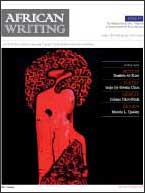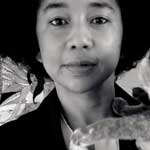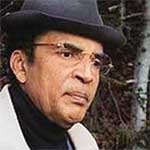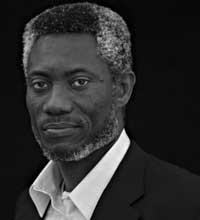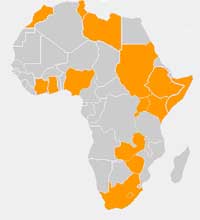Welcome
How to be African Enough
Once in a while we get a polite query in the inbox: our correspondent would like to know what themes and genres interest us at African Writing. It is always tempting to set out the usual stalls for a laidback journal that is seriously interested in the literary short fiction, poetry, and the like, of our published history.
Yet there is always the possibilty of an al-Koni manuscript so fantastic as to be futuristic. Everyday, a strange apparition can jump from orality into literature. (It is not that many years since a new ethnic nation was ‘discovered’ in the remote mountains of Mambila.) Every issue, a new concatenation of writer, voice and subject can do a newish thing... it would seem that the categories of Africana are not yet closed so we have to keep an open mind on themes and subject matter. In our editorial meetings, it is not so much is it African enough as much as is it excellent enough.
We also get enquiries about location. Our correspondent studied in Zanzibar, worked in Chile and now lives on a South Sea island... yet for the magazine, Africa is largely a state of mind.
Naturally, we get the traditional sub-Saharan query: is the accurate name for this magazine Sub-Saharan African Writing? Our short answer is the map on the right. In this issue we feature several original translations from the Arabic. There is fiction from prodiguous Libyan writer, Ibrahim al-Koni, and poetry from Moroccan Malika Assal and Tunisian Essia Skhiri. We also feature a sweeping Arabophone review, by blogger Marcia Lynx Qualey, of North African literature from Egypt, through Libya, Tunisia and Morocco, to Algeria. So, no; it is African Writing.
And for good measure, our spiritual map of Africa includes our outlying islands, large and small. (This is our tongue-in-cheek, one-love-theory of literary harmony...) In this issue for instance, in addition to contributions from fifteen African countries, Malaysian writer Elaine Chiew writes in from Hong Kong and Geoff Ryman, the engaging Canadian sci-fi author, relates his experience of outstanding Francophone comic writers in a Parisien show. Even our PlaceNames column is a bolt from the Puerto Rican town of Hormigueros.
Now and again we get the Mozambican letter: our writer would love to submit, but her literary language is Portuguese... Tough one, that. One day we may have Portuguese, Swahili, Sesotho editions of African Writing; in the meantime (with due apologies to Mwalimu Ngugi) do send us an English translation to consider.
And then we get the odd apologetic email: our correspondent is not African, does not speak an African tongue, has never visited, and is unsure whether his writing is African enough — never having read Africana before. And to that we have to sigh (while prescribing remedial back issues of African Writing): Only you can decide if you are African enough to read, and write for, us. African arms have been open for millenia. We are not about to fold them now. — It would not be... African.
Welcome to  11. Enjoy the stories available online, but do support the journal by clicking on the cover visual on the sidebar to subscribe to the print edition. If you cannot wait for the post, buy a PDF download — and then make a thoughtful gift of a print subscription.
11. Enjoy the stories available online, but do support the journal by clicking on the cover visual on the sidebar to subscribe to the print edition. If you cannot wait for the post, buy a PDF download — and then make a thoughtful gift of a print subscription.
We do need your active and effective partnership as Reader in our ministry to Literature.
Chuma Nwokolo,
Publisher & Editor

photocredit: Andrew Ogilvy
![]()

